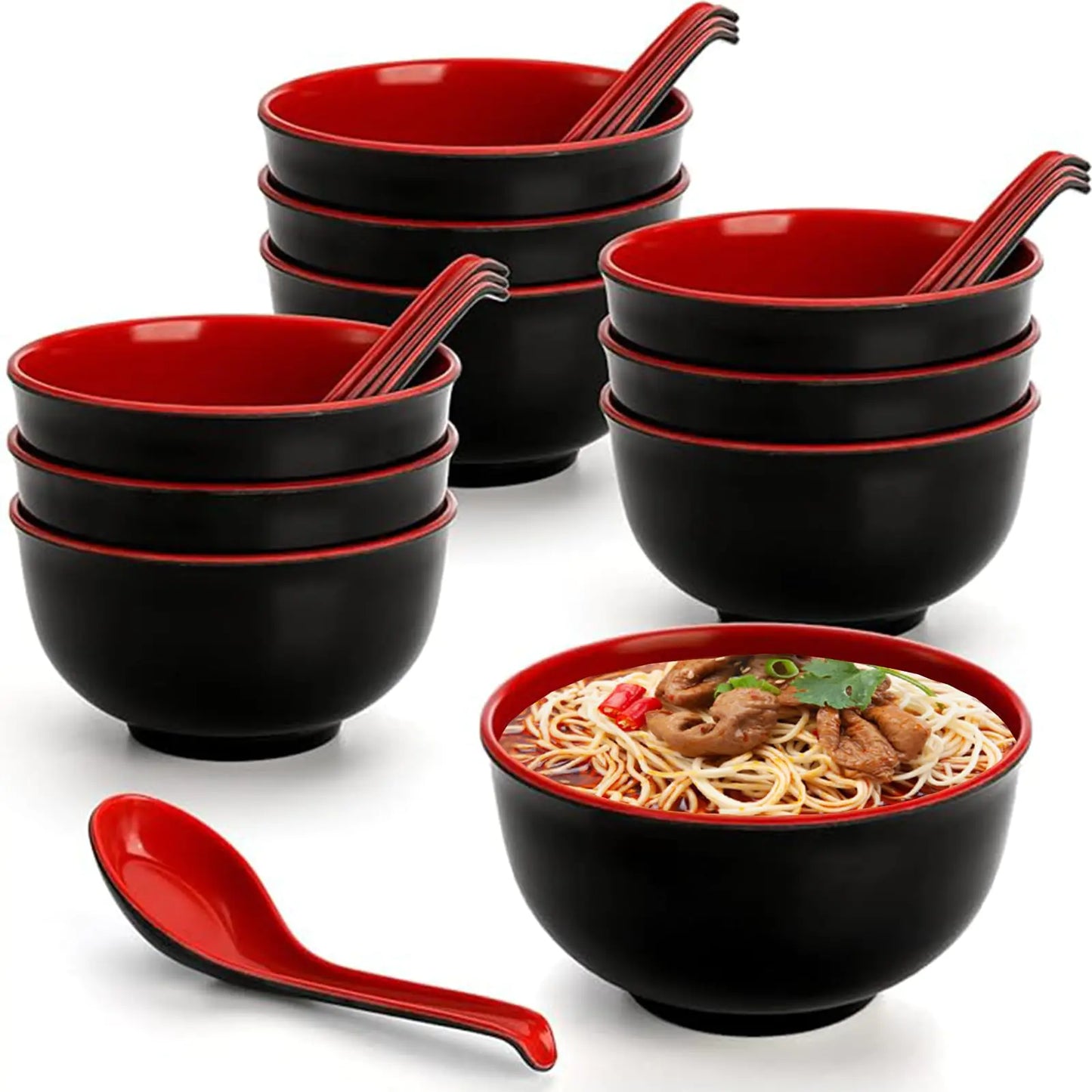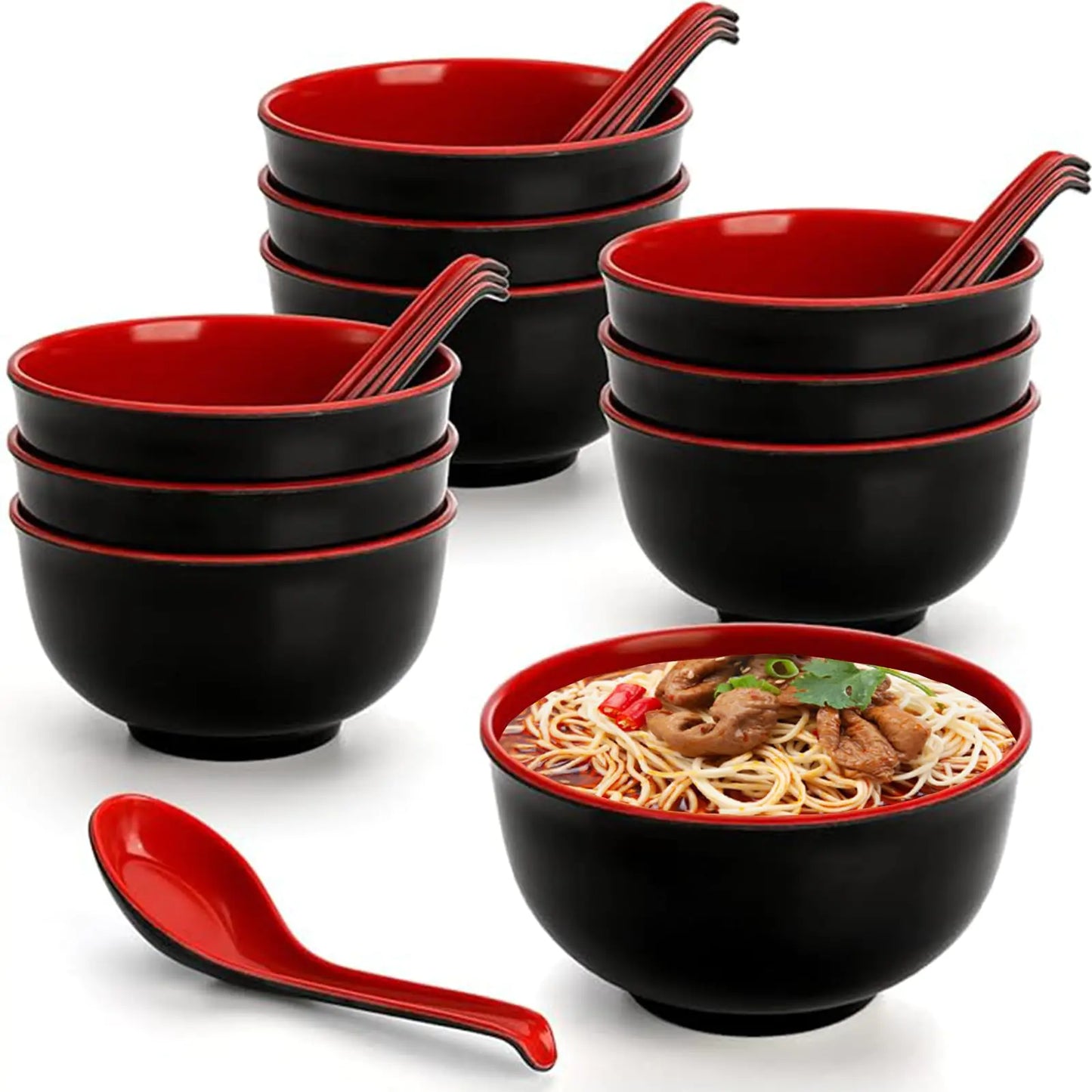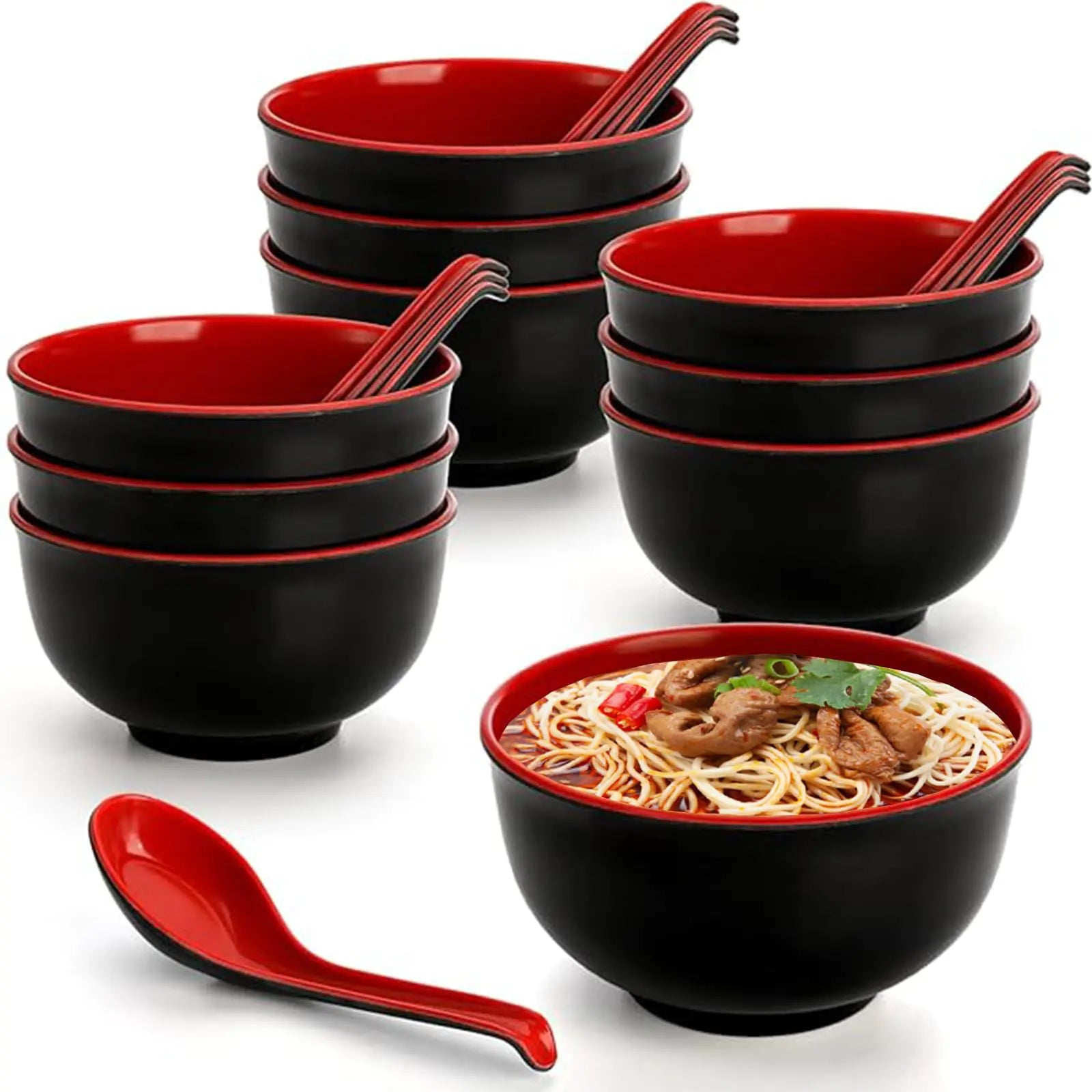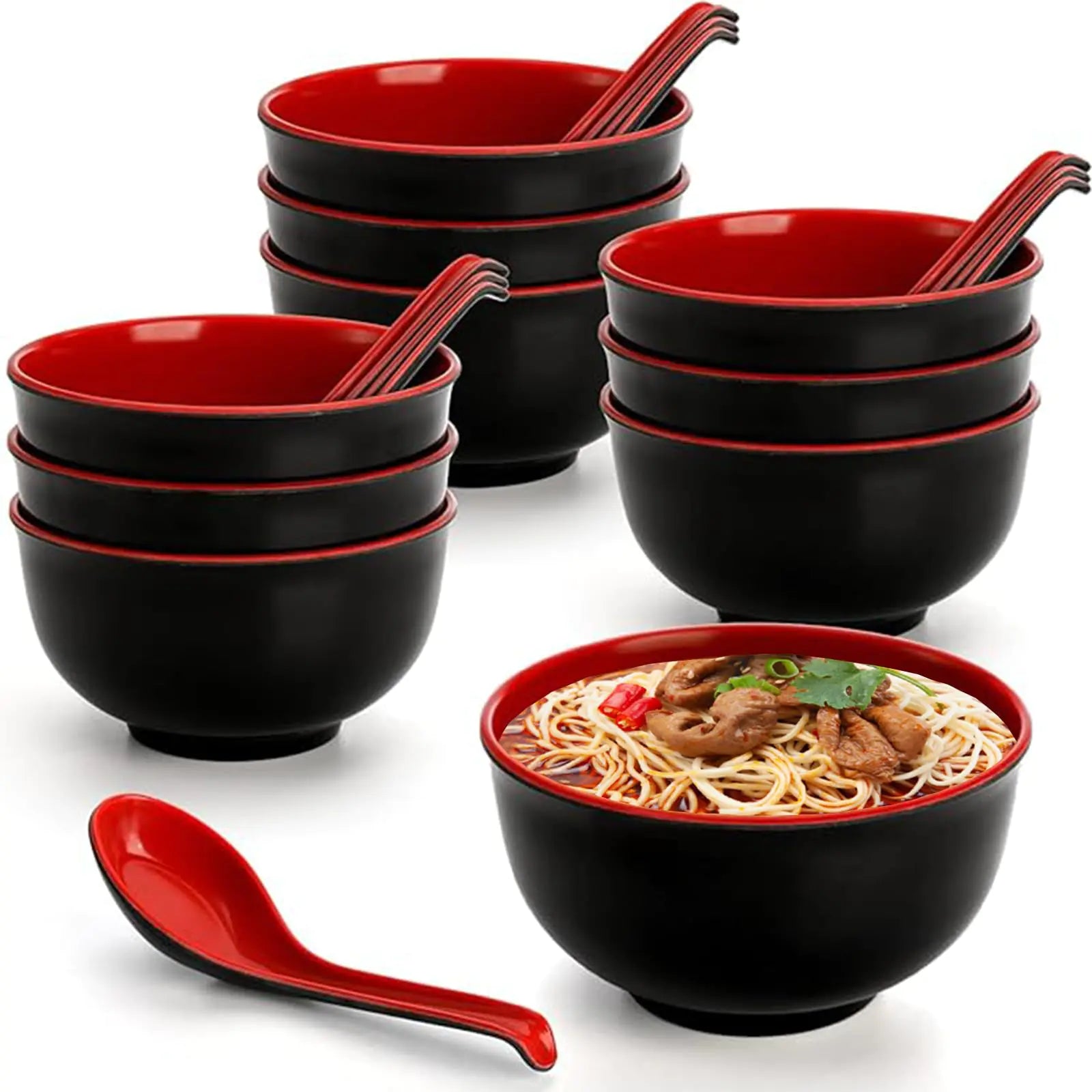OpenNest
Durable, Stylish: FISDEN Unbreakable Japanese Soup Bowl Set – 16oz BPA-Free Melamine
Durable, Stylish: FISDEN Unbreakable Japanese Soup Bowl Set – 16oz BPA-Free Melamine
픽업 사용 가능 여부를 로드할 수 없습니다.
FISDEN 10-Piece Melamine Japanese-Style Soup & Noodle Bowl Set with Spoons – 16 oz / BPA-Free, Unbreakable (Red & Black)
Love ramen, udon, or hearty soups but tired of breakable bowls?
This FISDEN set gives you 10 sturdy melamine bowls + matching spoons — each holding 16 oz (≈450 ml), BPA-free, dishwasher-safe, Japanese-style red & black design. Perfect for family meals or restaurant quality at home.
Product Details
| Feature | Information |
| Brand | FISDEN |
| Pieces Included | 10 bowls + 10 matching spoons |
| Capacity per bowl | 16 oz (≈ 450 ml) |
| Dimensions Diameter | ~5″ (≈ 12.7 cm), Height ~2.7″ (≈ 6.9 cm) |
| Material |
Restaurant‐quality melamine, BPA-free |
| Color / Finish |
Exterior black, interior red (classic Japanese red/black lacquer-look) |
| Usability | Durable, resistant to chipping and breaking. Dishwasher safe. Not safe for microwave use (standard for melamine). |
| Ideal Uses | Ramen, miso soup, udon, rice, cereal, salad, side dishes |
Why It’s Designed This Way
Why melamine & unbreakable? Schools of design for restaurant / heavy use kitchens often choose melamine because it's lightweight, tough, and doesn’t shatter like ceramic. That’s ideal for frequent use.
Why 16 oz / dimensions chosen? That size is a balance: enough to hold noodles + broth + toppings without overflow, yet manageable for people to lift & eat comfortably.
Why the red & black color scheme? It evokes traditional Japanese lacquerware aesthetics, which gives a familiar, elegant “restaurant” feel without actual lacquer or fragile materials.
Symptoms (problems it solves) / Early Signs You Need This
You may want this set if:
- Your current bowls chip or break often (especially with children or frequent use).
- You host more than 4 people and need matching bowls for family or groups.
- You prefer lightweight but durable bowls (e.g. for outdoor dining, picnics).
- Your current dinnerware looks stained or dull; you want that fresh Japanese appearance without high cost.
Treatment / How to Use & Care
Before first use: Wash with warm soapy water; rinse well.
Daily use: Safe in dishwasher (top rack recommended). Avoid microwaves — melamine can warp or release substances if overheated.
Avoid harsh acids or oil stains: Melamine can sometimes stain (e.g. turmeric, curry) if left long. Rinse promptly.
Storage: Stack carefully so that bowls don't scratch inside; the spoons fit inside the bowls for compact storage.
Prevention / Maintenance Tips
Use soft scrubbing pads (avoid steel wool).
Don’t pour boiling oil or extremely hot liquids (melamine tolerates heat but extreme can degrade over time).
Keep out of direct flame / oven.
Occasionally check for any cracks or crazing (fine cracks inside glaze/plastic); discard if integrity compromised.
Possible Side Effects / Limitations
Not microwave safe. Heating too much can cause damage or unsafe leaching.
Melamine may retain odors if not cleaned well.
Surface may scratch over time if metal utensils are used roughly.
Not as heat-retentive as ceramic; soups cool faster.
Environmental concerns: Melamine is plastic. Disposal and manufacturing have environmental impacts. If you prefer eco-friendly, might consider bamboo, ceramic, or porcelain alternatives.
Extra / “Must-Know” Unique Points
Spoon included for each bowl is a big plus — many sets leave spoons out. Useful for soups, ramen or serving.
Uniform matching set of 10 is ideal for parties / larger families; cheaper per bowl than buying individually.
The color contrast (red inside, black outside) helps visually with presentation: food looks more vibrant (whites brighter, greens more vivid).
Weight per bowl is light — easy for kids or elderly to hold.
Dishwasher safety makes cleanup fast. Saves labor and reduces risk of breakage when washing by hand.
Verified Research / Safety Data
According to the United States Food and Drug Administration (FDA) and numerous studies, high-quality food-grade melamine resin materials can be safely used for dishes if they meet BPA-free standards and are not overheated.
A relevant study: “Migration of melamine from melamine-formaldehyde plastics (‘Melaware’) into various food simulants and foods themselves”, Food and Chemical Toxicology / Contaminants literature. It shows typical kitchen use (below ~100°C) is safe; issues arise with extreme heat or when in contact with acidic simulants for extended times. (E.g. Bradley EL et al., 2010)
Share




